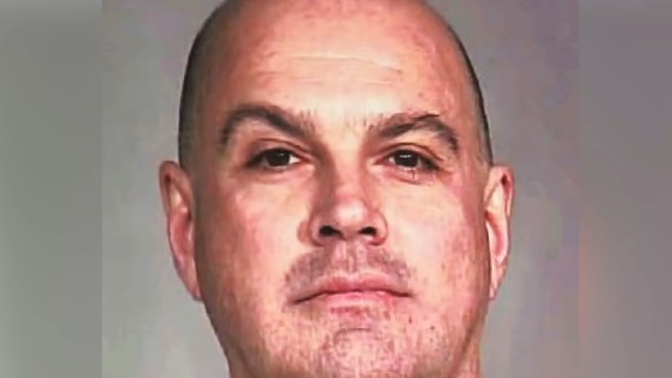Sex trafficking, extortion and forced labor.
Those are just a few of the allegations that are facing Lawrence Ray, who was the best man for former NYPD Commissioner Bernie Kerik. He is also the father of a Sarah Lawrence College graduate. According to the Daily News, Ray was arrested Tuesday for the unthinkable acts he allegedly committed against his daughter's classmates at the school.
The 22-page Manhattan Federal Court indictment states that the accused “subjected the victims to sexual and psychological manipulation and physical abuse.”
The 60-year-old is also accused of scamming five victims and collecting about $1 million.
"Ray directed his victims to obtain money for him by other means, by draining their parents' savings and worse, forced labor and prostitution," Geoffrey Berman, U.S. attorney for the Southern District of New York, said at a press conference per CBS News.
One woman was reportedly forced to work as a prostitute for four years starting in 2014, with Ray serving as her pimp and collecting about $500,000 of her earnings. Ray allegedly saved explicit photos of this same victim while threatening to report her to the police.
“For the better part of the last 10 years, Ray has continued to mentally and physically torture his victims,” William F. Sweeney Jr., head of the FBI office in New York, said at a news conference per The New York Times.
According to The Cut, Ray's daughter graduated from Sarah Lawrence in 2013, but his alleged cruelty extended well beyond her enrollment at the school.
According to CBS, Ray reportedly collected taped confessions from his victims to make them feel like they committed a crime. One video from 2017 shows a victim who says she tried to poison Ray.
“College is supposed to be a time of self-discovery and new-found independence,” Berman said. “But as alleged, the defendant exploited that vulnerable time in his victims’ lives, with a course of conduct that shocks the conscience.”
According to The New York Times, the 60-year-old came to his daughter’s college in 2010 after being released from prison, where he served time for charges stemming from a custody dispute. Ray moved into his daughter's dormitory and started doing “therapy sessions” with her roommates, convincing them he could help them with their problems.
Officials said Ray persuaded the students to move off campus and live with him in a one-bedroom apartment, making them suffer from sleep deprivation, sexual humiliation, physical and verbal abuse. The indictment also states that the accused threatened to dismember a young man and almost suffocated a woman after forcing her into prostitution. Three other women were forced to perform unpaid manual labor on Ray's family’s farm in North Carolina, according to The Cut.
Prosecutors said Ray alienated the students from their parents, convincing them that they were “broken and in need of fixing” by him. Investigators began looking into the matter after New York magazine published an article in April titled “The Stolen Kids of Sarah Lawrence.”
“The charges contained in the indictment are serious, wide-ranging, disturbing and upsetting,” Sarah Lawrence College administrators said in a statement. “As always, the safety and well-being of our students and alumni is a priority for the college.”
According to the Times, Ray worked as an FBI informant in the 1990s. He also arranged a city hall meeting for Mayor Rudolph W. Giuliani with Soviet leader Mikhail Gorbachev in 1997.
The 60-year-old is now facing nine charges, including counts of sex trafficking, extortion and money laundering.
Iliana Konidaris, founder of civil rights firm Konidaris Law, said: “sex trafficking has a much lower threshold than people realize.”
“When they hear the term, they think there must be a transportation element that involves women being imported from abroad. That it’s not something that happens on elite American college campuses,” Konidaris told The Washington Post.
She added that this type of case can “happen in high schools and middle schools. It happens on college campuses — wherever there are power dynamics.”
“How do you explain the situation to a college administrator in a beautiful, pristine office? It’s a big ask,” she said. “If you at least put it in your policies, establish the definition, tell students you’re trained to understand the signs, put it in your resources list — that would be huge.”
